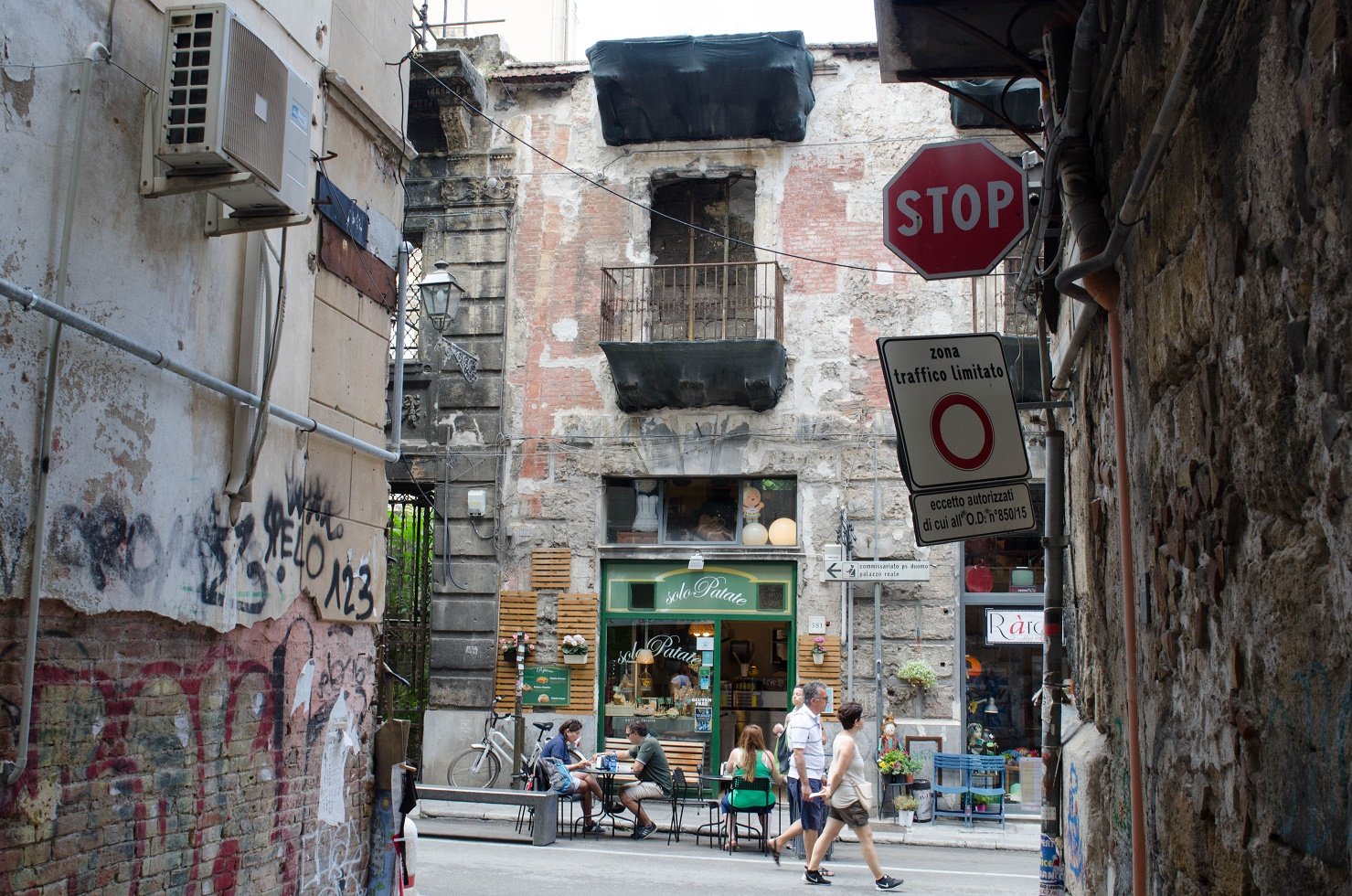PALERMO, Sicily (CN) — The “City of the Mafia”? Yes and no. But in many ways, Palermo, a jewel of the Mediterranean, can say it’s no longer ruled by the mob.
“Without a shadow of a doubt things are better,” said Rosario Li Cause, a 63-year-old antiquarian polishing a 19th-century table at his sidewalk shop.
“The bad years were in the ’70s, ’80s, ’90s,” he said. “A lot of people lost their skin [were killed].”
In those years Mafia rule left the city suffering nearly total breakdown in civil society, a war zone. Hundreds lost their lives.
“If the shootings were from morning to evening, you of course had a sense of fear,” Li Cause said.
Today things are different. Palermo, Italy’s fifth-largest city, is humming with activity and undergoing changes big and small in the hope of preventing a return to the bad days.
“It’s no longer the city of massacres,” said Antonino Blando, a political scientist at the University of Palermo. “It's another city. If you take a trip (around Palermo) it’s evident” how much has changed, he said.
The historic city center is largely pedestrian and prominent avenues such as Corso Vittorio Emmanuele and Via Maqueda were recently converted to solely bicycle and pedestrian traffic.
It doesn't stop there. Traffic cameras have been set up, and Palermo's notoriously fast and wild traffic has slowed, just a bit.
A citywide tram and subway system continues to expand and an influx of investment and signs of new prosperity are taking hold.
To cap it off, this year Palermo is being celebrated as Italy’s cultural capital, an honor for a city remaking itself. Tourists by the millions now visit Palermo, recognized today by UNESCO for its unique Arab-Norman medieval history.
For centuries, Palermo was one of Europe’s principal capitals and richest cities. But its prominence ended when Giuseppe Garibaldi, fighting to unify Italy under the rule of Liguria’s Savoy monarchy, invaded Sicily in May 1860. Southern Italy had been ruled from royal courts in Naples and Palermo.
After unification, and more spectacularly during World War II and the postwar period, Palermo was devastated by a series of catastrophes, resulting in dramatic emigration and criminality.
Much of the city was left in ruins by Allied bombing during World War II. After liberation, Palermo fell into the hands of organized crime.
In the 1950s and 1960s, Palermo, once one of Europe’s most verdant cities, with villas and gardens, was turned into a cement jungle as Mafiosi and unscrupulous politicians, commercial interests and builders oversaw construction of dangerous condominiums and tenement blocks. This period is known as the “Sack of Palermo.”
With the advent of worldwide drug trafficking, Palermo descended into the darkest years of Mafia control. Residents say the city was a world of unlit streets, murders and pervasive silence, as people feared to venture outside.
Behind the scenes, a bloody battle was raging between crime syndicates over control of lucrative black markets. Use of extreme violence became normal. Mafia groups committed crimes that would have been unthinkable under the old customs of the Mafia, historians say.
Children, mothers, wives, grandparents, judges, police officers, lawyers, journalists and activists were killed, maimed and threatened. As for Mafiosi, killings between them were common, in the hundreds.
A crucial turning point came after 1992, when the city’s most prominent anti-Mafia magistrates were killed — Giovanni Falcone and Paolo Borsellino — in coordinated ambushes.
In the wake of the killings, Palermitans rose up in protest and demanded an end to the Mafia. With the help of the national government and Italy's justice system, the city’s Mafia groups were strangled. In those days the Italian Army patrolled Palermo’s streets.
“We want to believe it’s water that has passed under the bridge,” said Valeria Maniscalco, a 48-year-old Palermitan theater actress, as she sat with a friend drinking beers on a recent afternoon.
“We really hope it’s over, that we can go about in a beautiful city and that we can breathe an era that is more clean.”
Her friend, Biagio Giarrusso, pointed to the busy Ballarò piazza full of people on this June afternoon.
“There used to be rats all over this piazza. You couldn't walk!” he said. “It was awful.”
Palermo still has many problems. It’s one of Italy's poorest cities. Police routinely arrest Mafiosi, but they are more of the common crook variety. Corruption is still a problem, with politicians and public contracts. And lots of people still live off the tax books, working illegally.
“The city still has a very fragile legal economy, and the majority of the population still lives off of illegality, and this is a climate that favors the Mafia to resume,” said Umberto Santino, an expert on the Mafia at the Giuseppe Impastato Sicilian Center of Documentation in Palermo. The center is focused on combating the Mafia and is named after an anti-Mafia organizer and communist killed in 1978 as he was running in local elections.
There are so many other issues. Despite efforts to rein it in, traffic is still bad, as are the roads and infrastructure. Trash is the newest headache. The city simply can’t keep up.
Cement jungles are everywhere, as are many buildings that have not been rebuilt since World War II bombs destroyed them.
Nonetheless, the city seems far better off than it was before, many residents say.
“It's more livable,” said Francesco Castiglione, a 39-year-old biodiesel maker. “It's more pedestrian, more touristic, more welcoming. At the structural level too, it is more livable.”
More normal, in other words.
“Palermo changed with Falcone and Borsellino,” he said. “We used to fear even to use the word ‘Mafioso.’ Now it is no longer like this.”
(Courthouse News European correspondent Cain Burdeau lives in Sicily.)
Subscribe to Closing Arguments
Sign up for new weekly newsletter Closing Arguments to get the latest about ongoing trials, major litigation and hot cases and rulings in courthouses around the U.S. and the world.









